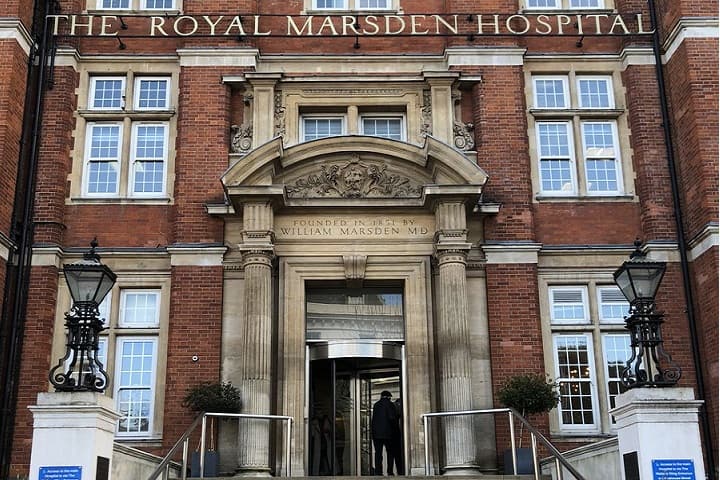The UK’s Royal Marsden Hospital in London has developed an e-form solution using Hyland OnBase that captures and tracks COVID-19 symptom responses from cancer patients remotely, prior to an appointment or treatment visit.
When the pandemic struck, tech-savvy oncologists at the Royal Marsden Hospital (RMH), which specialises in cancer treatment, wanted to develop a new system to protect cancer patients from COVID-19 exposure. The oncologists asked their CIO, Lisa Emery, to help them develop software to pre-screen patients for the infection, before arrival at hospital, to protect immuno-compromised cancer patients. To pre-screen patients effectively, they needed to know when newly admitted patients tested positive for COVID-19, when patients exhibited symptoms of the disease and when patients came into close contact with someone with the virus. Additionally, the cancer specialists wanted to monitor the health of COVID-19 patients already discharged from hospital.
Manual pre-screening process was labor intensive
A COVID pre-screening questionnaire already existed in paper form at the hospital, but completing it was a labour-intensive, manual process. According to Emery, skilled nurses spent time calling patients to administer the questionnaire, removing them from more pertinent tasks. The right solution would allow RMH to pre-screen patients simply and quickly, allowing nurses to return to more pressing work. It would also empower patients, allowing them to take a more active role in their care.
Collaboration and flexibility produce innovative solution
RMH turned to OnBase, Hyland’s enterprise information platform, to build the solution. Emery and her team suggested transforming the paper questionnaire into a dynamic electronic form, which could check symptoms remotely. As the teams began to collaborate, they reimagined the content of the form. Beyond a simple pre-screening, collected data could, in turn, trigger a response from a nurse cancer specialist to contact the patient, provide reassurance and set up a video-consultation, if necessary. It was imperative that Information could be collected easily and shared quickly.
Automated workflow notifies clinicians of patient needs
The teams also wanted to make sure the software was simple for patients to use as they did not want to overload cancer patients with too many system changes. RMH worked with the Hyland team to create a web portal where patients could easily access and fill out the symptom checker. Patients could provide up-to-date medical information, as well as any COVID-19-specific symptoms they may be experiencing. The answers provided could trigger a specialist response and other clinical intervention. The trigger would arrive via automated workflow and an email would notify the specialists that patients may be in need.
RMH expands symptom checker throughout enterprise
After development and launch, adoption of the remote symptom checker has increased. It is now used to check any patient for COVID-19 symptoms, prior to arrival, for any form of treatment. RMH is now working with several clinical teams and expanding its use of the symptom checker to outpatient clinics as well. The hospital also plans to revisit the technology and apply it to other communicable diseases, like the flu.


















